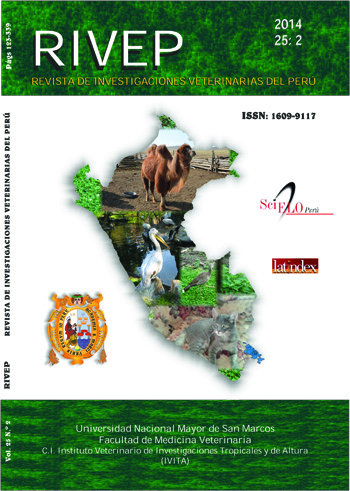TYPOLOGY OF COMPETENCIES IN VETERINARY EDUCATION
DOI:
https://doi.org/10.15381/rivep.v25i2.8503Keywords:
professional competences, professional skills, competency-basededucation, veterinary curricular development, veterinary educationAbstract
Along the advancement of globalization over the past three decades, the meaning ofcompetencies, which began by referring to individual and group performance assessmenttests has become a kind of common and global language in academic, labor, and socialmilieus. Thus, the competencies approach (standardized and non-standardized) hastranscended to higher education institutions and specifically to veterinary educationcenters in multiple and varied aspects; however, incorporation of the competenciesapproach to educational systems tends to parcel out their meaning on the basis offragmented concepts and notions of what they are and represent. Given the need forreferential analysis frameworks about the different types of competencies relevant toveterinary education, this study examined from precursors and components ofcompetencies to the constructs that properly define them, aimed at integrating a typologyof competencies to facilitate their joint and articulated understanding and to providemore input to the educational systems involved, in the search and implementation ofimprovements. The research was based on three elements of analysis: a) the conceptualframework provided by a set of 18 definitions related to individual and group competencies,b) a sample of 27 curricula, from an equal number of veterinary education institutions;and c) four areas of research and analysis that, in turn, serve as sections and define thestructure of the article’s content. It is observed that whereas global curricular reforms areaimed at either the development and strengthening of disciplinary competencies or thegeneric (non-technical or professional) ones, institutional curricular reforms (relevant toeach institution) must address the competencies from a joint and contextualized perspective.Downloads
Downloads
Published
Issue
Section
License
Copyright (c) 2014 Juan B. Clemént B.

This work is licensed under a Creative Commons Attribution-NonCommercial-ShareAlike 4.0 International License.
AUTHORS RETAIN THEIR RIGHTS:
a. Authors retain their trade mark rights and patent, and also on any process or procedure described in the article.
b. Authors retain their right to share, copy, distribute, perform and publicly communicate their article (eg, to place their article in an institutional repository or publish it in a book), with an acknowledgment of its initial publication in the Revista de Investigaciones Veterinarias del Perú (RIVEP).
c. Authors retain theirs right to make a subsequent publication of their work, to use the article or any part thereof (eg a compilation of his papers, lecture notes, thesis, or a book), always indicating the source of publication (the originator of the work, journal, volume, number and date).










